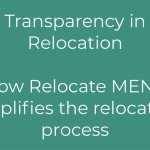The Butterfly effect.
I talk a lot. As a business owner – I am incredibly transparent (some would say far too much) about what I have been through here and my trials and tribulations in the Middle East. Although it’s been incredible living life as a single 40-something, there have also been troubles and challenges, a cataclysmic ripple effect that caused many further inevitable events that reached far and wide. Both were creating unexpected issues and highlighting avoidable mistakes.
Vulnerability
I would say I’m openly vulnerable. Is that even a thing, or did I just make it up? Vulnerability is the state of exposure to potential harm, danger, or risk, right? For any of you that have listened to Brene Brown’s podcasts or TED talks on vulnerability, you’ll know where I’m coming from. In a personal context, vulnerability can refer to the willingness to be open and honest about our experiences, even if they may be uncomfortable or challenging to share.
Being vulnerable can be daunting, as it requires trust and courage to let others see our true selves. However, vulnerability can also be a source of strength and resilience, allowing us to connect more deeply with others and build authentic relationships. I like to think I connect with people on a whole new level.
No harm or foul.
In a business context, vulnerability may involve admitting mistakes or weaknesses, asking for help, or being open to feedback and criticism. Embracing vulnerability can lead to greater creativity, innovation, and collaboration, as it fosters an environment of trust, authenticity, and empathy. However, being open and vulnerable is challenging; most people will find it isn’t the first thing they want to discuss.
Learning from our failures is essential, and I want to share these experiences to help others avoid similar pitfalls. Being vulnerable is not easy, especially when social media tends to showcase only the highlights of our lives. However, it’s important to remember that we are all humans, and mistakes are inevitable.
While there may not be a one-size-fits-all solution, sharing our experiences and insights can make these topics more universal and easier to navigate.
Let's talk about work, hiring, and firing.
So if you're hiring, you're also at some point... potentially... firing. Hiring and firing employees can be a complex process anywhere in the world, but it can be particularly challenging in the Middle East due to cultural, legal, and regulatory factors. This blog post will explore some critical considerations when hiring and firing people in the Middle East.
From personal experience, being fired from a role is one of the toughest challenges when working in the Middle East. You lose your job, medical coverage, home, lifestyle, and ability to return/bounce back into the market. There is also the risk of losing your financial stability. Once you’re fired, if you have a loan or credit facility, the bank can pull this at any time and demand repayment, often taking your last salary as collateral. If you are fired at any point, you can get a breakdown of your termination settlement, as you may need to prove this to the bank to enable you to access your funds; they can only hold your gratuity, not your salary or your bonus. Not having access to your funds is a monumental headache.
I was let go from a role a fair few years ago; The company was a small relocation and mobility business that didn’t process my visa for months and months and months. Getting paid on time was hard enough, let alone trying to push them to action my visa, and I knew I was in a sticky situation; I know so much more about the visa process in the UAE; … Three months passed, and there was still no visa; I learnt there was no medical cover if there was no visa; I suffered a car crash, nothing serious, and I got the all-clear. However, it scared me into understanding the “What if it was so much more serious …..” After me pushing them for an answer and backing them into a corner, the next day, they let me go. But only after they had pillaged the corporate contact list that I have personally built over the years.
Hiring Employees in the Middle East:
- Know the Labor Laws
It’s essential to know the labour laws of the country or countries where you plan to hire employees. Labour laws can vary significantly across the Middle East, so it’s essential to consult with a legal expert to ensure that you comply with the applicable laws and regulations.
- Use Local Recruitment Agencies
Working with local recruitment agencies can be a great way to find qualified candidates familiar with the local culture and customs. Local agencies can also help you navigate the hiring process and ensure you comply with local laws and regulations.
- Be Sensitive to Cultural Norms
When hiring employees in the Middle East, it’s essential to be sensitive to cultural norms and expectations. For example, in some countries, asking female candidates specific questions may be inappropriate during the interview process.
Firing Employees in the Middle East
- Follow the Law
Terminating employees in the Middle East can be complex, and following the labour laws of the country where you operate is essential. In many cases, employers must provide a valid reason for terminating an employee and follow specific procedures outlined in the labour laws.
- Be Sensitive to Cultural Norms
Firing employees can be a sensitive issue in the Middle East, where personal relationships and reputation are highly valued. It’s essential to approach terminations with sensitivity and respect and to ensure that the employee is treated fairly and respectfully throughout the process.
- Use Local Recruitment Agencies
When terminating an employee, offering support and resources is essential to help them transition to a new role or find new employment. This can include providing a severance package or offering career counselling services.
Hiring and firing employees in the Middle East can be challenging due to cultural, legal, and regulatory factors. It’s essential to be familiar with the labour laws of the specific country or countries where you plan to operate, to use local recruitment agencies, and to be sensitive to cultural norms and expectations. When terminating employees, it’s essential to follow the law, be sensitive to cultural norms, and offer support to the employee throughout the process. Employers can build successful and sustainable businesses in the Middle East by navigating these challenges with care and sensitivity.
But what happens when it all goes wrong?
When things go wrong in the hiring or firing process in the Middle East, it can have significant consequences for both employers and employees. Some potential risks include the following:
- Legal Issues
Failing to comply with local labour laws and regulations can result in fines, legal disputes, and damage to the company’s reputation.
- Cultural Misunderstandings
Misunderstandings or miscommunications can occur due to cultural differences, resulting in damaged relationships and reputations.
- Employee Discontent
Poor hiring or firing decisions can lead to low employee morale, increased turnover rates, and difficulty attracting and retaining top talent.
- Financial Losses
Hiring and firing mistakes can be costly, both in terms of the financial resources spent on the process and in the potential losses from decreased productivity, lost customers, or damage to the company’s reputation.
It’s essential to take a proactive approach to prevent these risks and address any issues that arise immediately. This may include working with legal experts and recruitment agencies, offering support to terminated employees, and being transparent and communicative with all stakeholders throughout the process. Employers can minimize the negative consequences of hiring and firing mistakes in the Middle East by mitigating risks and addressing issues as they arise.
- As wonderful as Expat life is. Ensure you have at least three months’ salary in the bank as your emergency funds, just in case.
- Plan for the eventuality. Leaving, packing, shipping, and flight home. It all adds up, and “doing a runner” isn’t working for you. It shouldn’t be you’re only option—or anyone else’s, for that matter.
- Don’t get into debt you can’t afford. Being clever with your card is paying it off every month in total. Not taking out four or five to keep up with the lifestyle. I wish they would teach kids about credit cards and how to use them.
- Know your legal rights under relevant employment law; don’t rely on Facebook groups for advice if you’re unsure. Speak to the appropriate employment authority. They are seriously helpful.
And finally, talk to your friends, tell them what’s happening to you. You’ll be surprised at the lengths people go to because they may have been in a similar situation.









